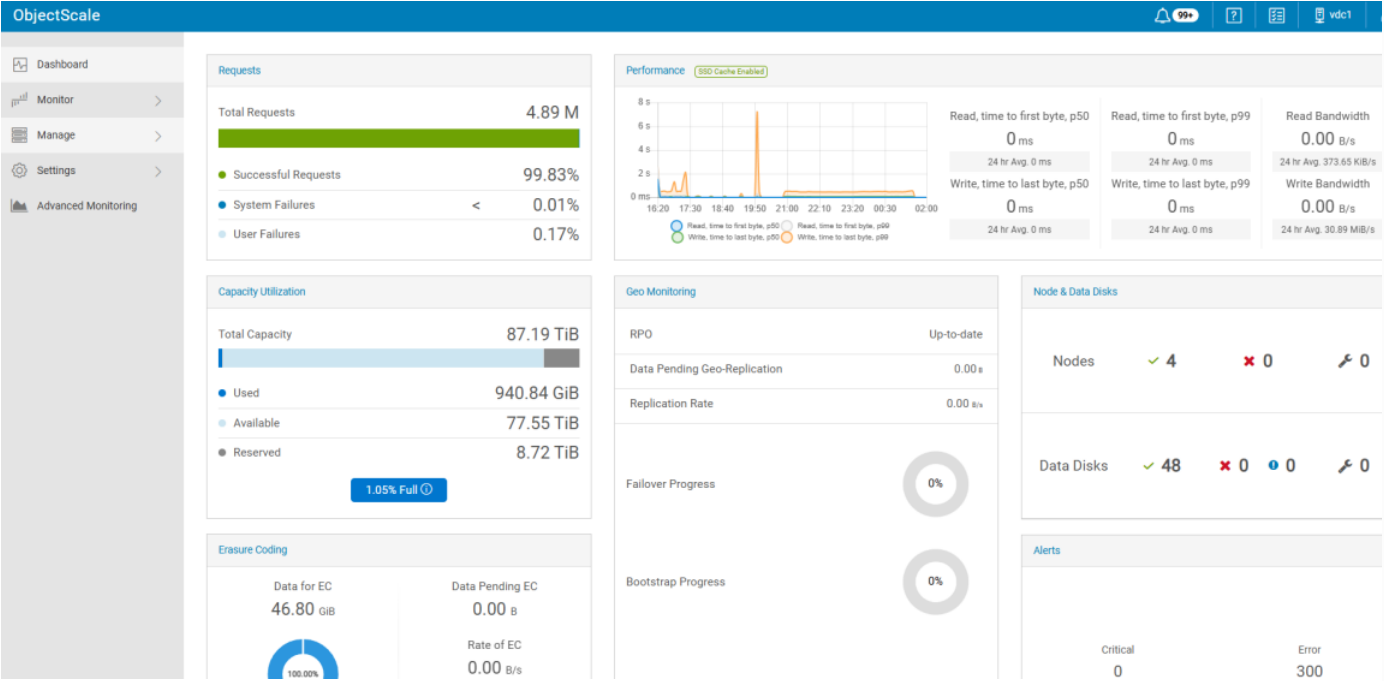Fresh off the launch of the new ObjectScale 4.1 release, Dell Technologies has announced the general availability of the ObjectScale XF960 platform, a next-generation all-flash object storage appliance designed to meet the performance demands of AI, analytics, and unstructured data workloads. The XF960 is now ready to ship, offering a compelling blend of speed, scalability, and efficiency.
Built to support performance-driven workloads, the XF960 enables organizations to unlock the full potential of their data. Whether training complex AI models, managing large datasets, or deploying cloud-native applications, the XF960 provides the object storage substrate needed to drive innovation.

As Dell’s highest-performing object storage platform to-date, the new XF960 delivers up to 300% more read throughput, 42% more write throughput, plus 75% lower read and 42% lower write response times than the previous-generation EXF900.
The XF960 scales effortlessly from small clusters to large enterprise deployments, maintaining performance and manageability throughout. It also introduces advanced data efficiency features, including five user-configurable compression modes—LZ4, Zstandard, and Deflate among them—allowing for up to a 9:1 compression ratio on certain workloads.
Enhancing its S3 protocol compatibility, the XF960 supports push-based event notifications, up to three times faster object listing, S3FS file system mounting, and seamless integration with the latest AWS SDKs, improving both data access and developer productivity.
Designed for flexible integration, the XF960 accommodates the expansion of existing ECS environments, and is initially supported with the new ObjectScale 4.1 code which dropped last week (8/12/25).
As compared to the EXF900, the XF960 features up-rev’d hardware, including a 2RU PowerEdge R760 chassis, dual Intel Sapphire Rapids CPUs with 32 cores, 256GB DDR5 memory, and support for NVMe drives ranging from 7.68TB to 61.44TB. It also includes 100GbE front-end and back-end NICs, dual 1400W power supplies, and S5448 switches.
| EXF900 | XF960 | |
| CPU | Dual Intel Cascade Lake 24 Cores (165 W) | Dual Intel Sapphire Rapids 32 Cores (270W) |
| RAM | 192GB RAM per node, installed as 12x16GB DDR4 RDIMMs | 256GB RAM per node, installed as 16x16G DDR5 RDIMMs |
| SSDs
(NVMe) |
3.84TB ISE
7.68TB ISE 15.36TB TLC ISE 61.44TB QLC ISE 12 and 24 drive configurations |
7.68TB TLC ISE
15.36TB TLC SED FIPS 30TB QLC ISE 61.44TB QLC ISE 6, 12 and 24 drive configurations |
| Front End NIC | 25GbE, 100GbE | 100GbE |
| Back End NIC | 25GbE, 100GbE | 100GbE |
| Power | Dual 1100W PSUs | Dual 1400W PSUs |
| Back/front-end Switches | S5248 | S5448 |
For existing ObjectScale all-flash customers, while it is technically possible to intermix EXF900 and XF960 nodes, it is not recommended due to performance limitations. Mixed clusters will operate at EXF900 performance levels. That said, the next ObjectScale release, v4.2, will introduce improvements for mixed environments.

